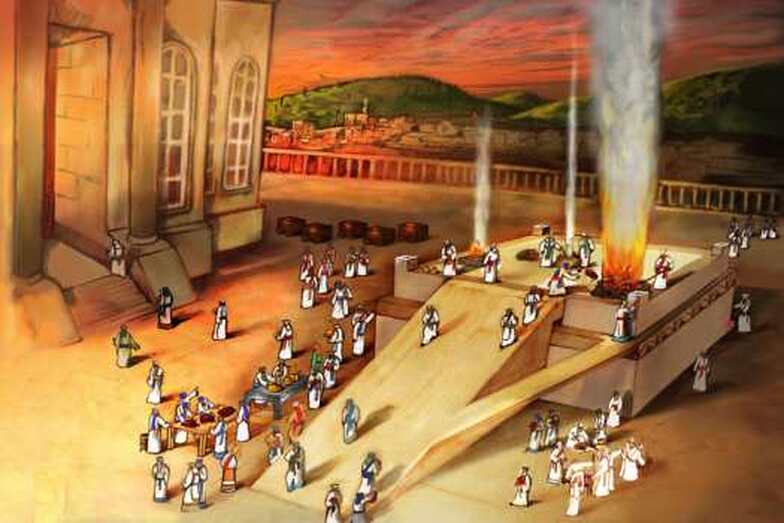 Rabbi David Etengoff Dedicated to the sacred memories of my mother, Miriam Tovah bat Aharon Hakohen, father-in-law, Levi ben Yitzhak, sister, Shulamit bat Menachem, sister-in-law, Ruchama Rivka Sondra bat Yechiel, Chana bat Shmuel, Yehonatan Binyamin ben Mordechai Meir Halevi, Shoshana Elka bat Avraham, Tikvah bat Rivka Perel, Peretz ben Chaim, Chaya Sarah bat Reb Yechezkel Shraga, Shmuel Yosef ben Reuven, Shayndel bat Mordechai Yehudah, the Kedoshim of Har Nof, Pittsburgh, and Jersey City, and the refuah shlaimah of Mordechai HaLevi ben Miriam Tovah, Yocheved Dafneh bat Dinah Zehavah, and the health and safety of our brothers and sisters in Israel and around the world. The first pasuk of our parasha continues the narrative of the Ten Plagues and serves as a prologue to the Plague of Locusts: “Hashem said to Moshe: ‘Bo (Come) to Pharaoh, for I have hardened his heart and the heart of his servants, in order that I may place these signs of Mine in his midst.’” (Sefer Shemot 10: 1, all Tanach translations, The Judaica Press Complete Tanach) This verse presents us with an exegetical challenge. Why did the Torah write “bo,” instead of the much more commonly found, “lech (go)?” This question has long intrigued Torah commentators, as demonstrated by its presence in the 12th or 13th century midrashic compilation, Midrash Aggadah: “Why does the Torah state regarding this plague, ‘bo to Pharoah,’ when it [bo] is found by no other plague; for in every other instance we find, ‘lech to Pharoah.’” (Solomon Buber edition, Parashat Bo, 10:1, translation my own) As one might expect, Chazal have suggested many answers to this question. One of my favorite responses is offered by Rabbi Menachem Mendel Morgenstern of Kotzk zatzal (the Kotzker rebbe, 1787-1859): “Lech to Pharoah” is not written here; instead, we find, “bo to Pharoah.” The reason for this linguistic change is that one can never walk away from before the Holy One blessed be He; moreover, it is impossible to distance yourself from Him. This is the case since He is found everywhere. [As the prophet Yeshayahu said:] “And one [Angel] called to the other and said, ‘Holy, holy, holy is the L-rd of Hosts; the whole earth is full of His glory.” (6:3) Therefore, it is written, bo,” [in our verse] connoting the notion that [Hashem is telling Moshe,] “Bo with Me, for behold, I am with you wherever you shall go.” (Rabbi Ya’akov Greenberg, Itturei Torah, page 78, translation and brackets my own) Quoting Yeshayahu’s celebrated verse, the Kotzker rebbe focuses on Hashem’s omnipresence in the world emphasizing the notion that the Almighty was ever with Moshe. My rebbe and mentor, Rabbi Joseph B. Soloveitchik zatzal (1903-1993), known as the “Rav” by his followers and disciples, presents a strikingly parallel analysis in his posthumous work, Festival of Freedom: When God chose Moses, he was very reluctant to accept the mission…Moses said to God: Who am I [mi anochi], that I should go to Pharoah, and that I should take the children of Israel out of Egypt? (3:11)—who am I, that I am worthy of becoming the redeemer? God answered him, For I will be with you [ki eyeh imach] (3:12). God promised Moses that he would never desert him; He would participate in the implementation of the mission, and together they would enter Pharoah’s chambers. Therefore, when God instructed Moses to appear before Pharoah, He used the imperative bo instead of lech. When Moses addresses Pharoah, God will be present; when he raises the staff, God will be with him. In effect, God says, bo imadi el paroah, Come along with me to Pharoah. (Pages 149-150 underlining and brackets my own) Moshe’s question, “mi anochi, who am I?” is something many of us ask ourselves when facing life’s challenges. Like Moshe Rabbeinu, we can take comfort in Hashem’s assurance, “ki eyeh imach, I will be with you.” We are never alone. As the Kotzker rebbe and the Rav teach us, Hashem is ever-present in our lives and whispers to each of us, “bo imadi, come with Me.” May we be zocheh to feel His grace as we walk upon the path of life. V’chane yihi ratzon. Shabbat Shalom Past drashot may be found at my blog-website: http://reparashathashavuah.org The email list, b’chasdei Hashem, has expanded to hundreds of people. I am always happy to add more members to the list. If you have family or friends you would like to have added, please do not hesitate to contact me via email [email protected]. *** My audio shiurim on the topics of Tefilah and Tanach may be found at: http://tinyurl.com/8hsdpyd *** I have posted 164 of Rabbi Soloveitchik’s English language audio shiurim (MP3 format) spanning the years 1958-1984. Please click on the highlighted link: The Rav zatzal
0 Comments
Leave a Reply. |
Details
Archives
July 2024
AuthorTalmid of Rabbi Soloveitchik zatzal Categories |
- Blog: Rabbi David Etengoff: Parashat HaShavuah
- Sefer Bereishit 5784&5785
- Sefer Shemot 5784&5785
- Sefer Vayikra 5784&5785
- Sefer Bamidbar 5784 &5785
- Sefer Bereishit 5782&5783
- Sefer Shemot 5782&5783
- Sefer Vayikra 5782&5783
- Sefer Bamidbar 5782&5783
- Sefer Devarim 5782&5783
- Sefer Bereishit 5780& 5781
- Sefer Shemot 5780&5781
- Sefer Vayikra 5780&5781
- Sefer Bamidbar 578&5781
- Sefer Devarim 578&5781
- Sefer Bereishit 5778&5779
- Sefer Shemot 5778&5779
- Sefer Vayikra 5778&5779
- Sefer Bamidbar 5778&5779
- Sefer Devarim 5778&5779
- Sefer Bereishit 5776&5777
- Sefer Bereishit 5774&5775
- Sefer Bereishit 5772&5773
- Sefer Bereishit 5771&5770
- Sefer Shemot 5776&5777
- Sefer Shemot 5774&5775
- Sefer Shemot 5772&5773
- Sefer Shemot 5771&5770
- Sefer Vayikra 5776&5777
- Sefer Vayikra 5774&5775
- Sefer Vayikra 5772&5773
- Sefer Vayikra 5771&5770
- Sefer Bamidbar 5776&5777
- Sefer Bamidbar 5774&5775
- Sefer Bamidbar 5772&5773
- Sefer Bamidbar 5771&5770
- Sefer Devarim 5776&5777
- Sefer Devarim 5774&5775
- Sefer Devarim 5772&5773
- Sefer Devarim 5771&5770
 RSS Feed
RSS Feed
